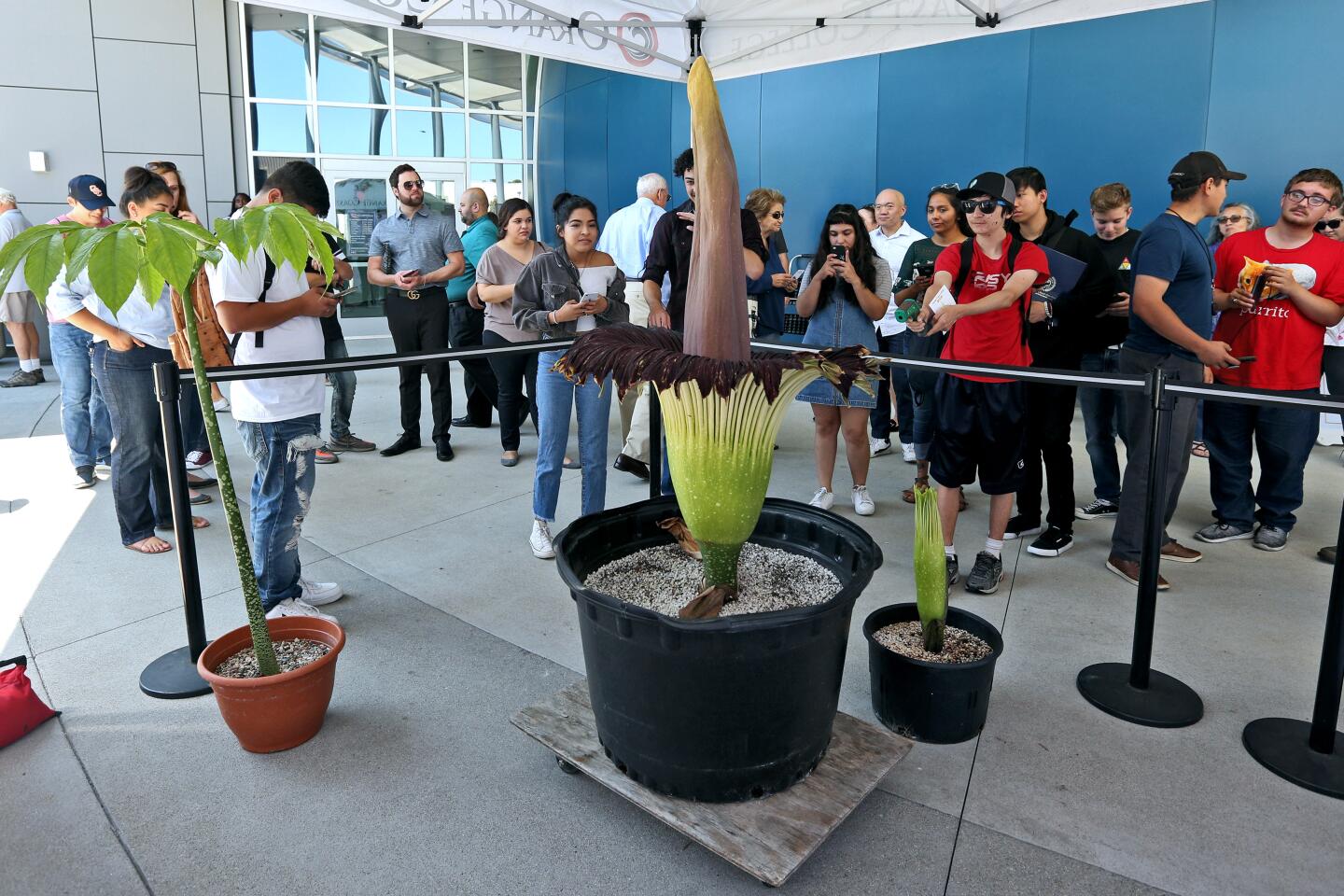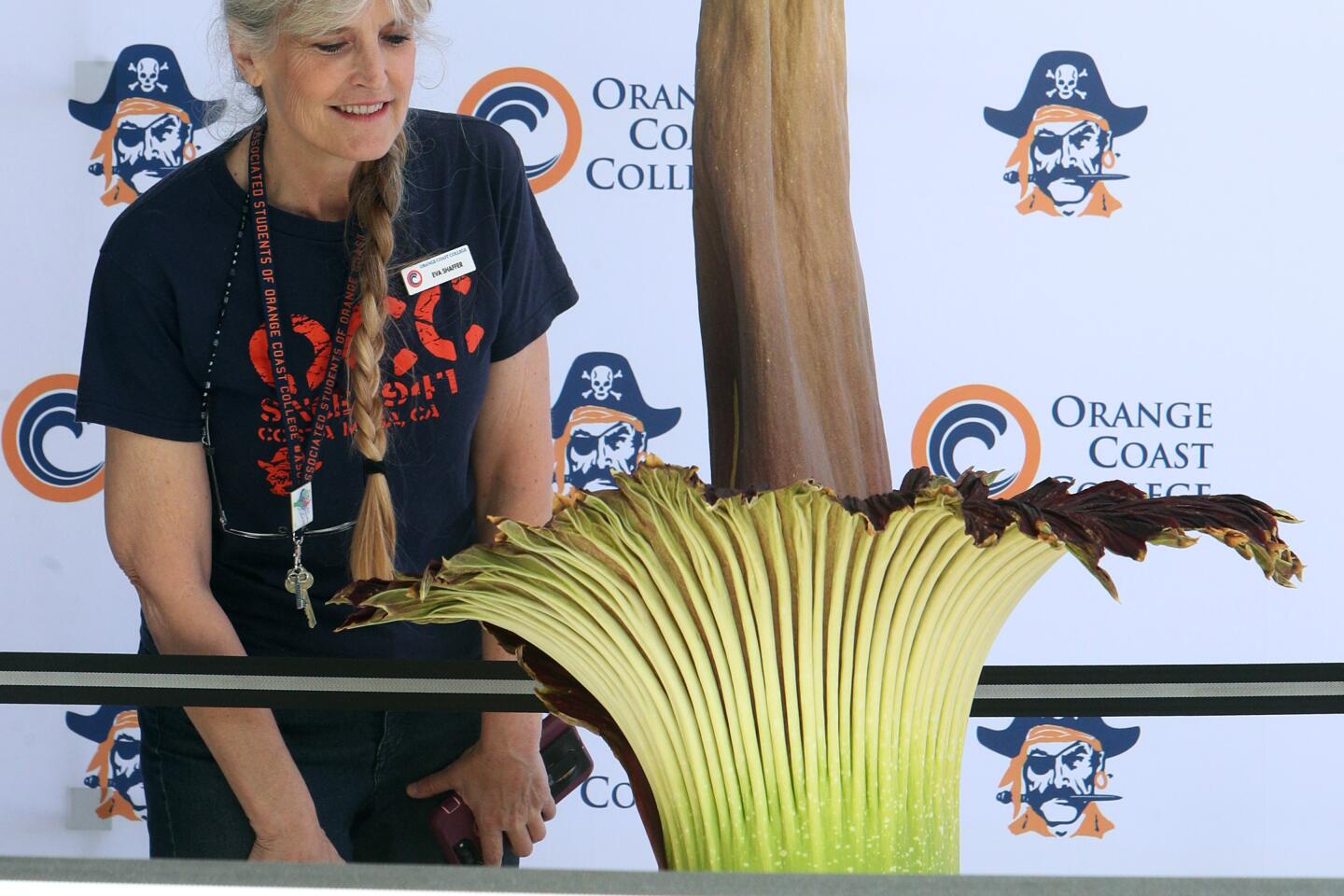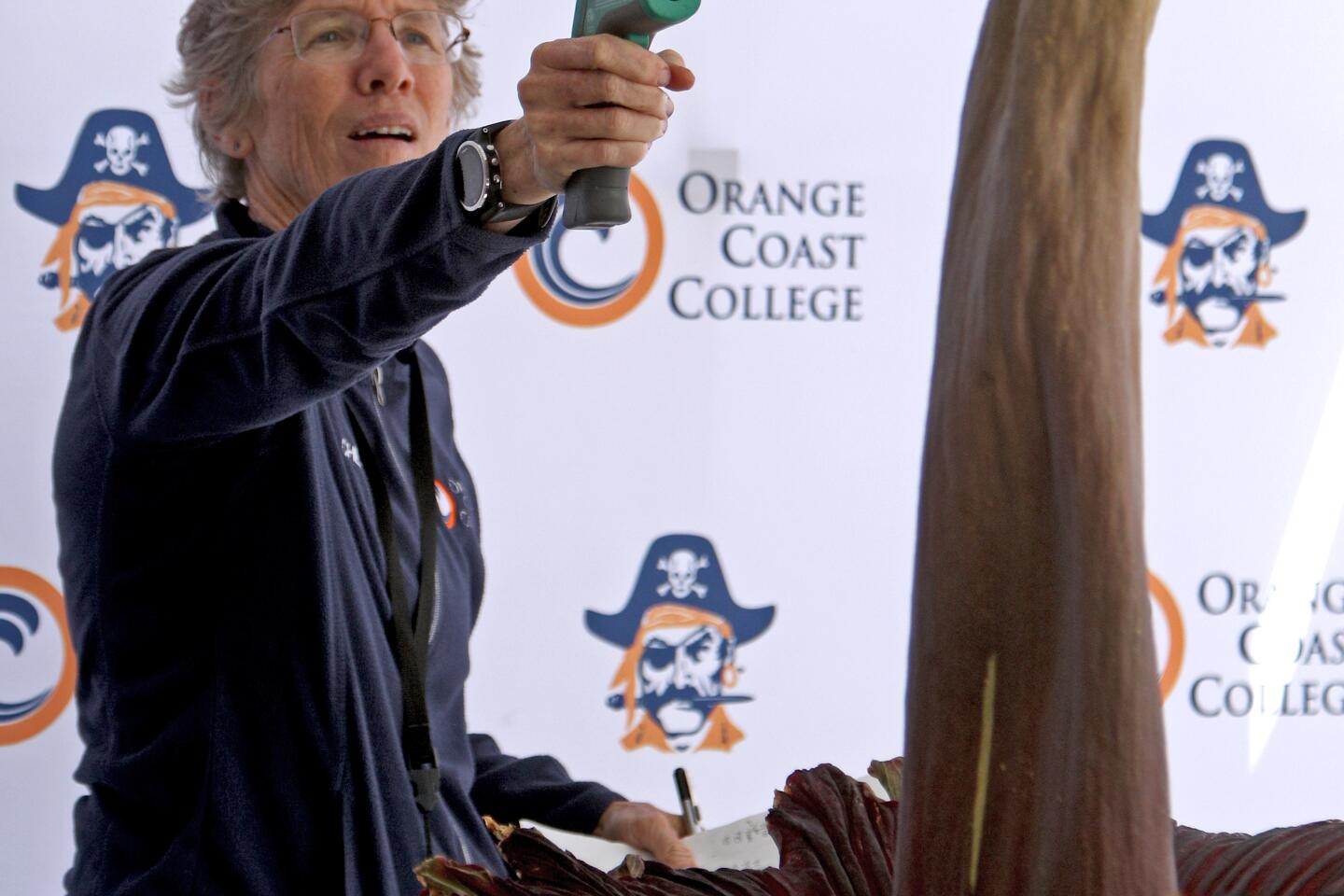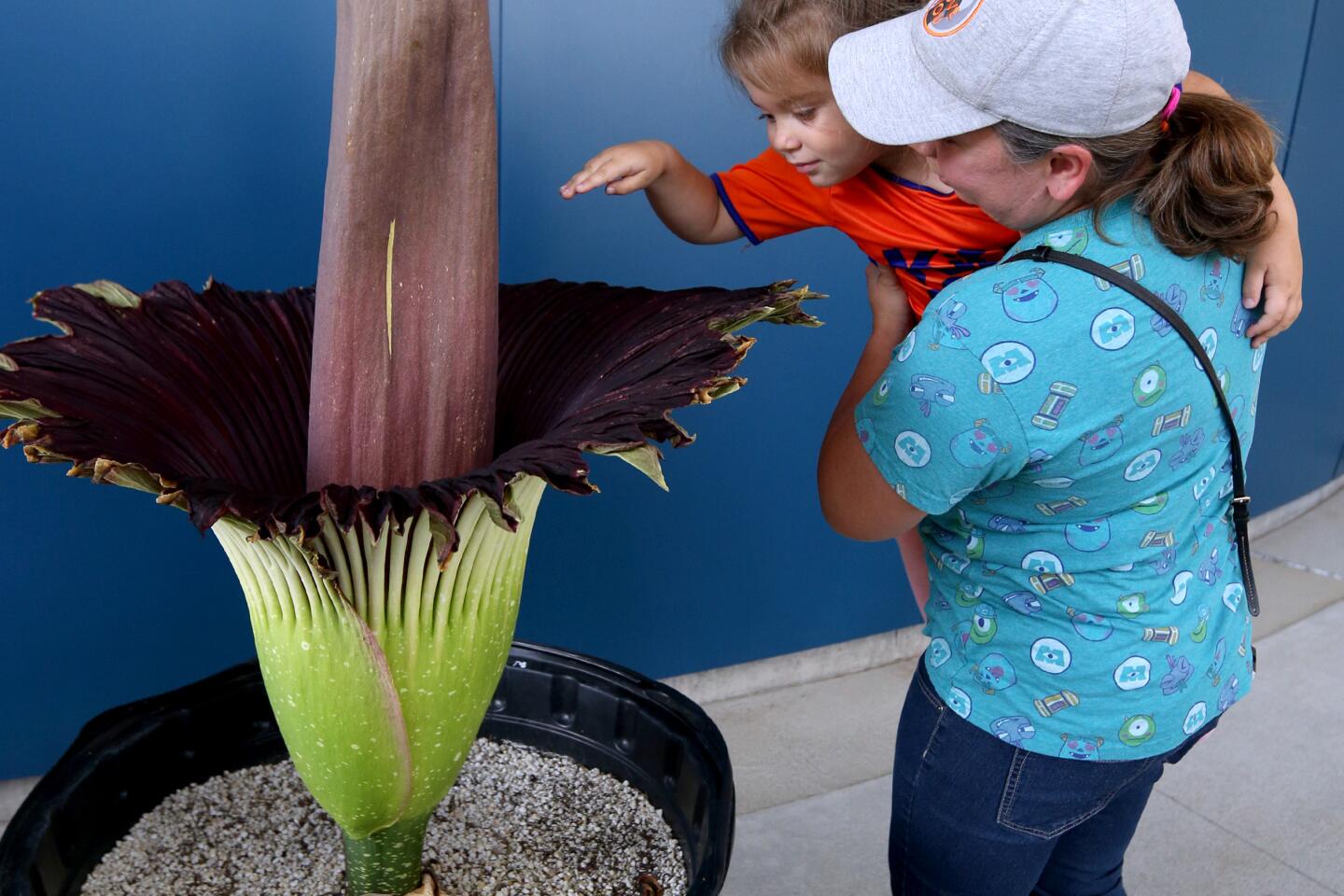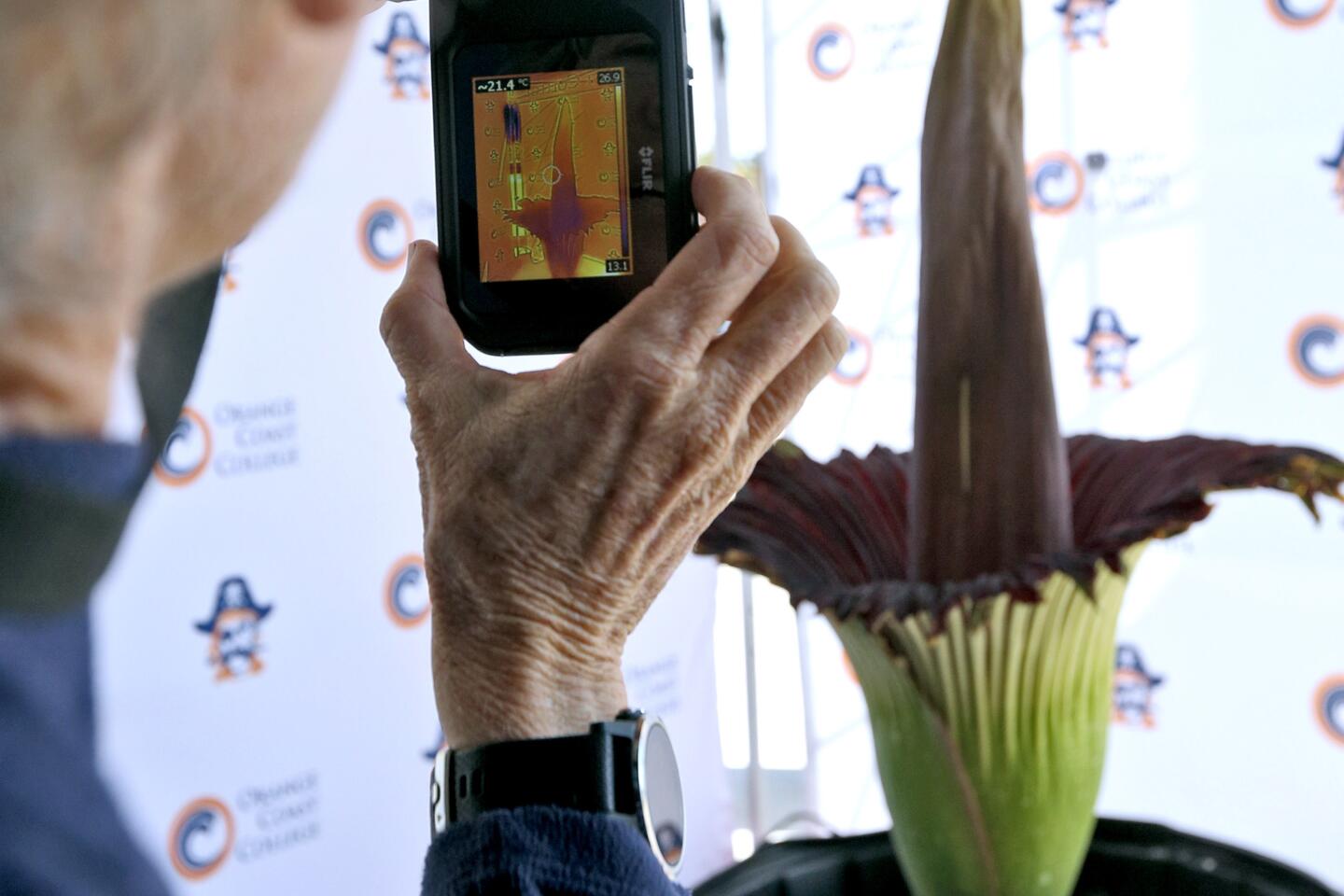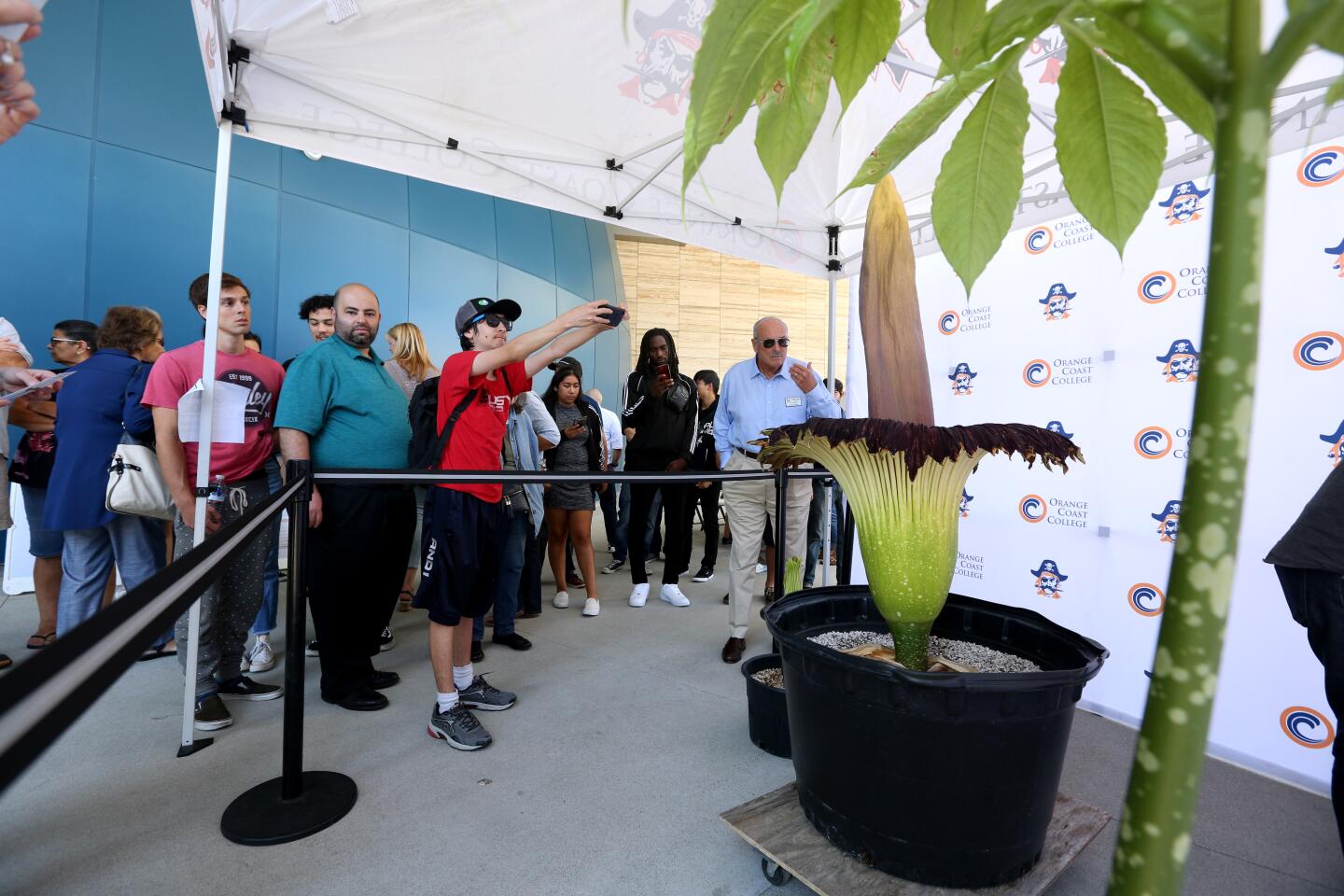It’s alive! Orange Coast College ‘corpse flower’ blooms — and stinks — to life
If you’ve wondered what a dead body smells like, the just-bloomed Amorphophallus titanum — more commonly known as a “corpse flower” — at Orange Coast College might give you an idea.
The plant’s acrid odor, which it emits for 24 to 48 hours after blooming, came alive Thursday night, a day later than horticulturists’ initial estimates. It’s called the corpse flower because it’s often said to smell like rotting flesh.
But as visitors gathered at the Costa Mesa campus Friday morning to get a whiff for themselves, there didn’t seem to be a consensus on its actual scent..
Jamie Hitchings, an instructor of film and television at OCC, said she previously lived in New York City and said the corpse flower’s odor reminded her of the city’s garbage in the middle of summer.
“It smells like stinky. Stinky!” said Hitchings’ 2-year-old daughter, River Zahringer.
Her older daughter, Juniper Zahringer, 5, thought it smelled good — almost like strawberries.
Costa Mesa resident Kathleen Tsai said she thought it smelled like a flower, but her husband, Albert Liao, disagreed.
“I’m not sure exactly what a corpse smells like, but [the plant] definitely smells like rotting trash. Like maybe rotting meat inside a trash can,” Liao said.
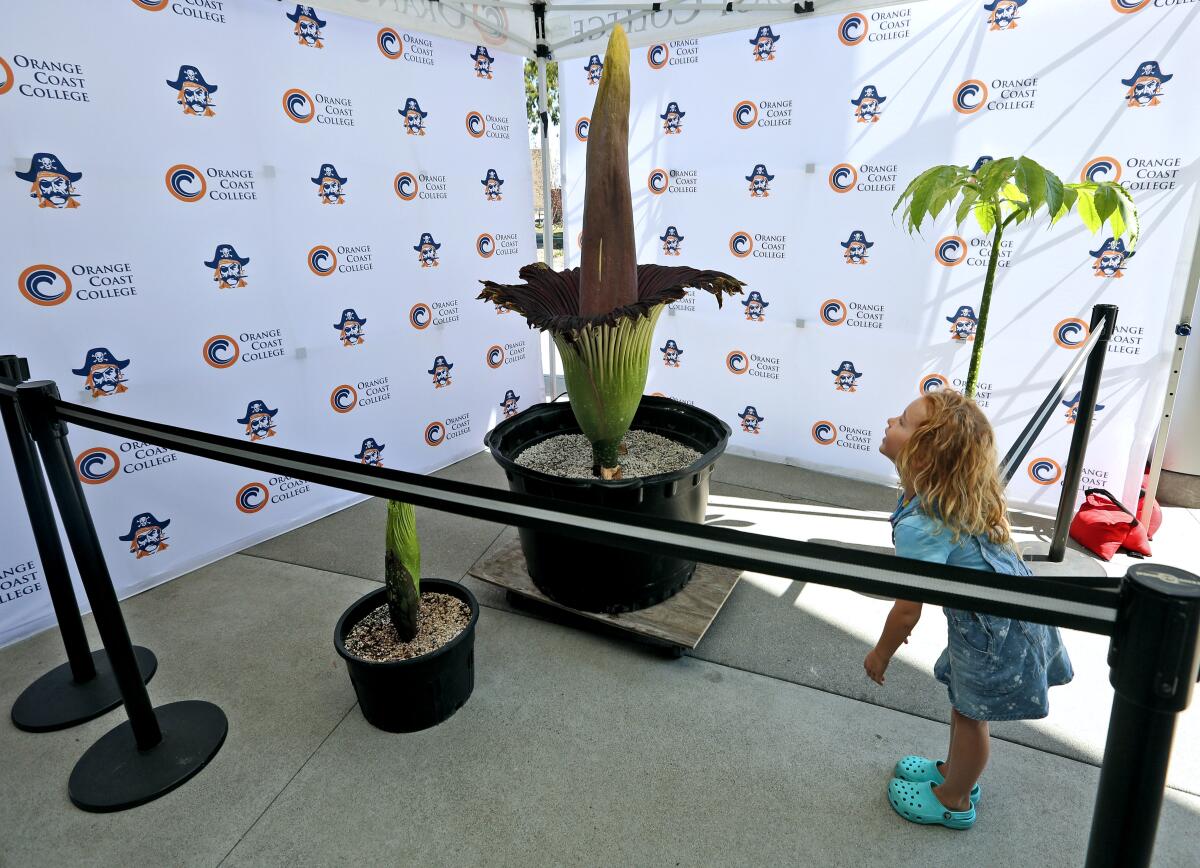
The Amorphophallus titanum plant is native to Sumatra, Indonesia, and is considered a carrion flower because of its scent and pollinators that it attracts.
It averages about 10 years to flower initially. After that, it will bloom every couple of years. It doesn’t typically flower in the wild.
The plant is on the International Union for Conservation of Nature’s Red List of Threatened Plants.
This is the third time a corpse flower has bloomed at Orange Coast College and the second time this particular plant has bloomed. It is one of three corpse flowers donated to the campus by the Huntington Botanical Gardens in San Marino in 2006.
It first flowered in 2014 and was named Little John after retired Orange Coast horticulture professor John Lenanton.
This year it is named Little Eva after Eva Shaffer, the student activity assistant at Orange Coast College.
A different flower bloomed in 2017 and was named Little Dougie after Doug Bennett, executive director of the OCC Foundation.
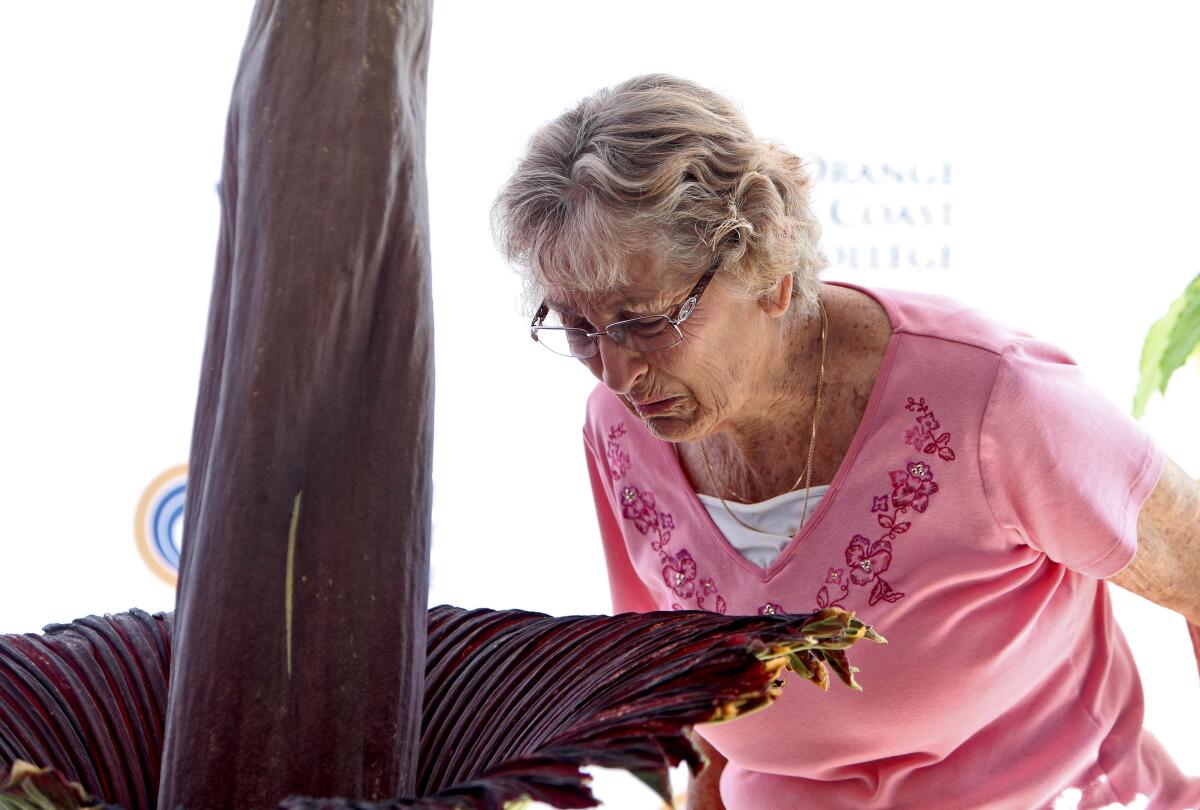
Though the school didn’t charge for parking or to see Little Eva starting Wednesday, Shaffer and other staff members were taking $5 donations toward student scholarships. They had received enough donations to fund one scholarship and hoped to have enough for a second by the end of the day Friday.
“It is just a huge honor to have this named after me,” Shaffer said. “It wasn’t expected, so I kind of cried a little bit when I found out.”
Shaffer said she had seen the two previous blooms of corpse flowers on campus and felt the odor was like rotting fish.
“Last night I was here when it bloomed and the stench ... was so bad,” she said Friday. “There were a few times I almost felt nauseous. But after a while, you kind of get used to it so it’s not so bad.”
So, does Little Eva, in fact, smell like a corpse?
Theresa Okamoto, a Huntington Beach resident who is an operating room nurse, said it’s not even close.
“Rotting flesh is way nastier than that. Rotting flesh is funky. It’s like, plug your nose,” she said. “We have stuff in the OR that we use so we can do surgery on patients so we can handle it.”
Joe Stead, the college’s horticulture lab coordinator, said that in about two weeks, the bloom will fall. But the college said a new corpse flower sprouted Tuesday. Stead said it is an offshoot of Little Eva.
All the latest on Orange County from Orange County.
Get our free TimesOC newsletter.
You may occasionally receive promotional content from the Daily Pilot.
